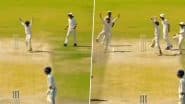New Delhi, September 27:슬롯 머신 사이트 추천The Supreme Court on Thursday delivered a landmark judgement on a petition challenging the constitutional validity of Section 497 (Adultery) of the Indian Penal Code (IPC) and said adultery is not a crime.슬롯 머신 사이트 추천 A five-judge bench of Supreme Court comprising of CJI Dipak Misra, Justices Rohinton Nariman, AM Khanwilkar, DY Chandrachud and Indu Malhotra decriminalised adultery in a unanimous judgement.슬롯 머신 사이트 추천The top court said adultery can be ground for divorce and a person will have civil remedies for it.
CJI Misra and Justice Khanwilkar said in their observation that a woman cannot be asked to think how a man or society desires. Her husband is not her master. We are not commenting on an ideal situation, merely looking at whether it should be criminalised.
The adultery law has come under sharp criticism for treating women as possession of men. In August, a five-judge constitution bench had reserved its judgment in August. The bench heard the plea which claimed that the law was discriminatory towards men, Chief Justice Dipak Misra referred the matter to a Constitution bench.슬롯 머신 사이트 추천Adultery Law: Centre Opposes Plea in Supreme Court That Seeks to Make Men And Women Equally Liable Under Section 497.
Key Highlights of the of Section 497 Judgment:
- CJI Dipak Misra on the petition challenging the validity of Section 497 (Adultery) of the Indian Penal Code (IPC) said슬롯 머신 사이트 추천Section 497 (Adultery) of the Indian Penal Code (IPC) is unconstitutional.
- CJI Dipak Misra said슬롯 머신 사이트 추천Section 497 IPC affects the right to life of a woman under Article 21 of the Constitution of India.슬롯 머신 사이트 추천Women can슬롯사이트�t be asked to think and do according to the will of society.
- "A woman cannot be asked to think how a man or society desires. Her husband is not her master. We are not commenting on an ideal situation, merely looking at whether it should be criminalised",슬롯 머신 사이트 추천CJI Misra and Justice Khanwilkar슬롯 머신 사이트 추천observed.
- Section 497 deprives a woman of agency and autonomy and dignity, Justice Chandrachud said. He further added saying that autonomy is intrinsic in dignified human existence. "Section 497 denuded the woman from making choices. It fails to meet touchstone of article 21" says Justice Chandrachud.
- Misra said the magnificent beauty of the democracy is 'I, you and we'.
- Misra while reading out the verdict on the petition said equality is the governing principle of a system. Husband is not the master of the wife.
- Parameters of fundamental rights should include rights of women. Individual dignity important in a sanctified society.슬롯 머신 사이트 추천The system can't treat women unequally. Women can't be asked to think what a society desires, the CJI said while reading the verdict.
- The CJI슬롯 머신 사이트 추천said that legal subordination of one sex by another is wrong. Social progression of women & views of Justice Nariman in Triple Talaq case considered. Adultery can be grounds for dissolution of marriage.
- Mere adultery can't be a crime, unless it attracts the scope of Section 306 (abetment to suicide) of the IPC: CJI Dipak Misra a reading verdict on the validity of Section 497 (Adultery) of the Indian Penal Code (IPC).
It must be noted that according to the adultery law, a man can be punished for having a sexual relationship with a married woman without the consent of her husband. Reports inform that the petitioners want Section 497 of the IPC to be made gender neutral. In India, adultery is a crime and the punishment for the same can be imprisonment for five years, or fine, or both.
Section 497 has been read with CrPC Section 198(2) in the matters of prosecution for offences against marriage. The combined reading of the adultery laws allows the aggrieved husband of the married woman in an adulterous relationship to file a complaint. But same right is not available to an aggrieved wife if her husband is found to be in an adulterous relationship.
The adultery law first came under challenge in 1951 in the Yusuf Aziz versus State of Bombay case. Petitioner contended that the adultery law violated the fundamental right of equality guaranteed under Articles 14 and 15 of the Constitution.
(The above story first appeared on LatestLY on Sep 27, 2018 11:03 AM IST. For more news and updates on politics, world, sports, entertainment and lifestyle, log on to our website latestly.com).













 Quickly
Quickly

















